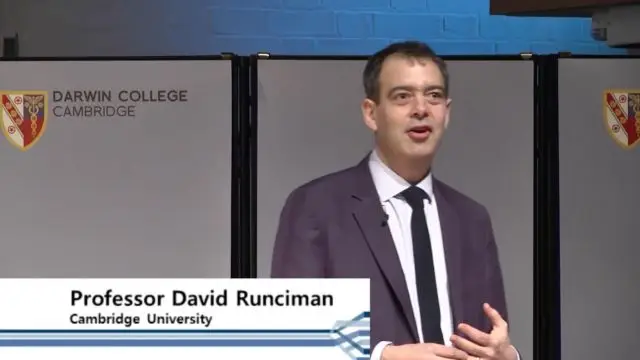Dealing with Extremism

7 years
2K Views
Category:
Description:
Many extremist ideologies rely heavily on conspiracy theories to explain how the world works and where power lies. This lecture explores what our understanding of conspiracy theories – where they come from, how they work, who believes in them – can tell us about dealing with extremism. The US presidential election campaign showed that conspiracy theories are increasingly becoming part of the currency of democratic politics. Is democracy itself becoming more extremist? Where do the boundaries lie between the contestation of democratic values and the repudiation of them? This lecture will examine the relationship between harmless conspiracy theories, dangerous extremism and the rise of ‘post-truth’ politics and it will ask how we can still draw the line between them.
Biography
David Runciman is Professor of Politics and Head of the Department of Politics and International Studies (POLIS) at Cambridge University. His books include Political Hypocrisy and The Confidence Trap: A History of Democracy in Crisis and he writes regularly about politics for the London Review of Books. He is one of the directors of a major Leverhulme-funded research project based in Cambridge on Conspiracy and Democracy, which explores the history and impact of conspiracy theories on democratic politics. (More details of the project can be found here: http://www.conspiracyanddemocracy.org/ ) He is the host of the popular weekly podcast Talking Politics.
Biography
David Runciman is Professor of Politics and Head of the Department of Politics and International Studies (POLIS) at Cambridge University. His books include Political Hypocrisy and The Confidence Trap: A History of Democracy in Crisis and he writes regularly about politics for the London Review of Books. He is one of the directors of a major Leverhulme-funded research project based in Cambridge on Conspiracy and Democracy, which explores the history and impact of conspiracy theories on democratic politics. (More details of the project can be found here: http://www.conspiracyanddemocracy.org/ ) He is the host of the popular weekly podcast Talking Politics.


